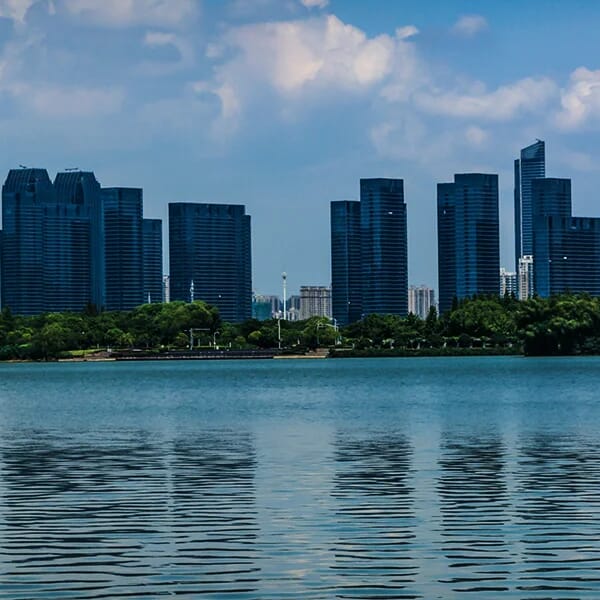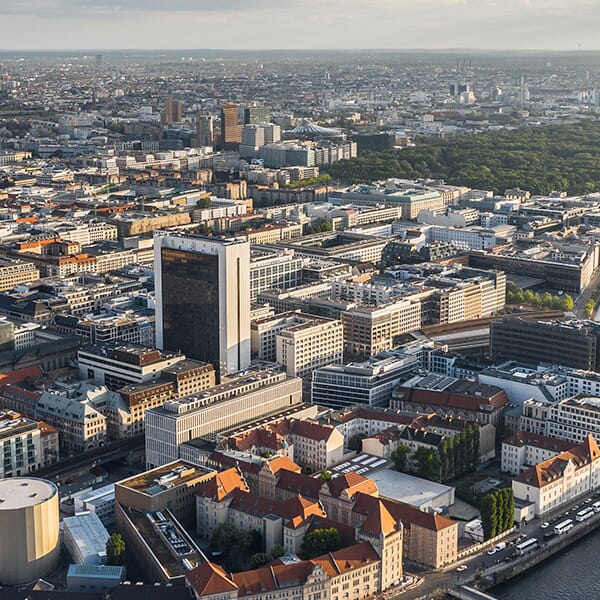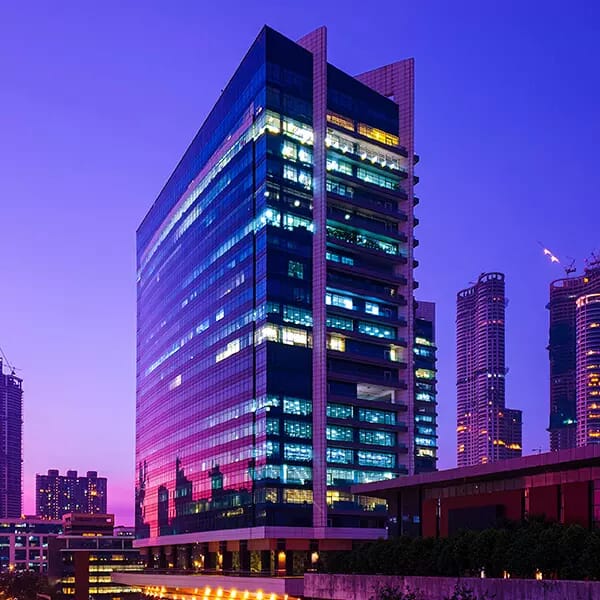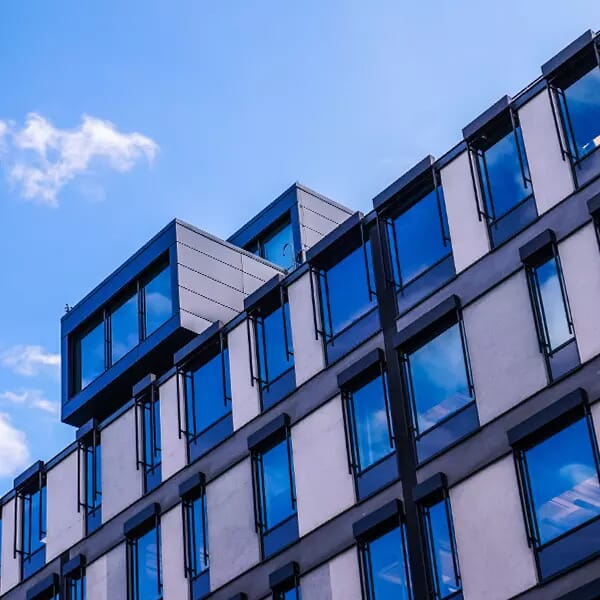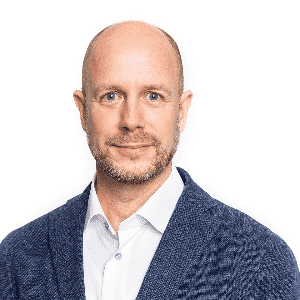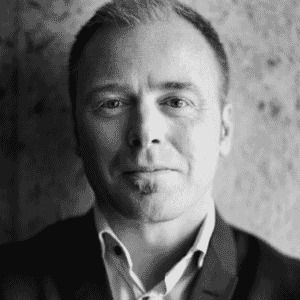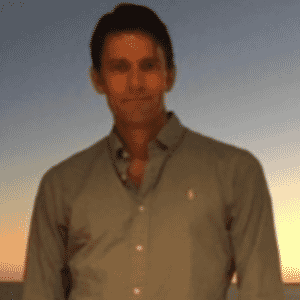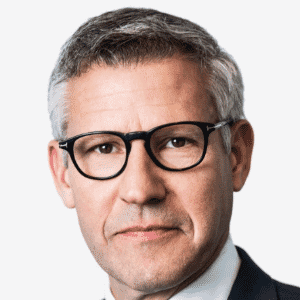 Radim Passer of PasserInvest
Radim Passer of PasserInvestGoing green & city planning - key metrics for Prague property
Radim Passer, Founder & CEO of PasserInvest, talks to the GRI Hub about city planning & going green being key for Prague property
November 1, 2019Real Estate
Speaking to property leaders across Europe, it’s clear that as the market squeezes and approaches its cyclical end, as well as political issues breeding uncertainty and negativity in the markets, investors are coming away from Western Europe and looking to place capital in somewhere safer. Radim Passer, Founder and CEO of Passerinvest, talks to the Hub about investing in CEE.
With regard to the second part of the question, in my opinion there is one common answer. I believe that both I and my colleagues are led to success by both joy from our work and our results and the responsibility to and respect of moral values. Plus, I personally feel that, thanks to work, I can create the means to help those in need, whether that means materially or spiritually.
But I am not as optimistic from the perspective of new trends in society. In my opinion, society has shifted from the quest for long-term prosperity, answers and facts to an emotional alignment, where feelings prevail over rationality. Unfortunately, local governments are also yielding to feelings more than they should. I am justifiably afraid that if the local politicians and their subordinates relinquish the role of authority, meaning those who haven’t yet relinquished it, they will become slaves to populism and lead our Prague to obsolescence and, to be honest, economic destruction.
What should developers avoid? That’s a good question. I think that it is the ability to not succumb to the often selfish moods of society. The developer is changing the site and the city for decades to come. It should not permit itself to be swayed by the current situation, if it is perceived to be irrational, or even by economic pressures, where succumbing to the situation means practically lowering the quality. I believe that it is better to not build at all than to build with the knowledge that I am causing damage to the city or place.
GRI Club is hosting specialised and tailored discussions on subsectors including light industrial, logistics, offices and residential for the most senior players in property GRI Light Industrial & Logistics Europe 2019 takes place on 6-7 November in Amsterdam, and GRI Offices 2019 and GRI Residential Europe 2019 take place on 19-20 and 26-27 in London, respectively.
Article by Matt Harris
What does Passerinvest Group do and what drives you and the company to be successful?
Passerinvest Group was originally purely a development company, though some time ago I found that if you want to keep a place like BB Centrum nice over the long term, you also have to become an investor. Thus, today we are not only just purely a Czech urban developer with projects on a European level, but also a long-term investor.With regard to the second part of the question, in my opinion there is one common answer. I believe that both I and my colleagues are led to success by both joy from our work and our results and the responsibility to and respect of moral values. Plus, I personally feel that, thanks to work, I can create the means to help those in need, whether that means materially or spiritually.
What are some market trends you're currently seeing at the moment?
As part of development, it is apparent that a lack of manpower across Europe, as well as the society becoming wealthier, leads to much higher demands on buildings and the quality of the environment in them as well as in their environs. Greenery, bicycle parking, the electrification of transportation, rooftop terraces, places for relaxation and much more are becoming the modern standard for successful developments. Plus, an environmentally-friendly approach resonates far more these days in society than before, for which I am glad.But I am not as optimistic from the perspective of new trends in society. In my opinion, society has shifted from the quest for long-term prosperity, answers and facts to an emotional alignment, where feelings prevail over rationality. Unfortunately, local governments are also yielding to feelings more than they should. I am justifiably afraid that if the local politicians and their subordinates relinquish the role of authority, meaning those who haven’t yet relinquished it, they will become slaves to populism and lead our Prague to obsolescence and, to be honest, economic destruction.
You've undertaken some place-making projects in the Roztyly brownfield - what are some important things to consider when placemaking and what should developers avoid?
These days a developer in Prague, and even internationally, takes a huge responsibility on itself, since he also must necessarily be an urban planner. Each part of the city has its own unique story. In the case of Roztyly, it is its position by the Kr? Forest, where it makes sense to create an expansive free and useful urban park and to gently develop buildings connected to this. It should be denser close to the busy roads so that it works as a sound barrier, bringing further quality to the given development and the wider area. Planning part of a city, just like the individual buildings, brings demands on the ability to combine a vision, respect to the locality and last, but not least, generosity. In Roztyly we are actively working with experience acquired in BB Centrum, from whence we know that generosity in non-profit investments in the public space and services is key for creating a nice, sustainable and, above all, user-friendly environment, meaning a part of the city as a whole.What should developers avoid? That’s a good question. I think that it is the ability to not succumb to the often selfish moods of society. The developer is changing the site and the city for decades to come. It should not permit itself to be swayed by the current situation, if it is perceived to be irrational, or even by economic pressures, where succumbing to the situation means practically lowering the quality. I believe that it is better to not build at all than to build with the knowledge that I am causing damage to the city or place.
We're seeing a large inflow of foreign investment into CEE at the moment, especially from South Korea and Asia. Why might this be, and what asset classes are they targeting?
Prague is still a very stable market from the perspective of investors. We have never, for example, experienced any large fluctuations on the office space market, and that is definitely a pleasant attribute for investors when planning. In the almost 30 years I have been in this business, the investors’ perspective has not changed all that much. Investors focus primarily on prime assets, whether that is in the office segment or in the retail or logistics segments. It often boils down to what the given investor is more experienced in and where it feels more comfortable on the given market. The marked influx of investments from Asia that we are seeing these days is, in my opinion, one of the next waves on the investment market. I think it is more important that local investors are taking up a far stronger position than they did a few years back. A local investor often has a greater attachment to a given country than foreign investors, who look at investments primarily through Excel tables or yields.GRI Club is hosting specialised and tailored discussions on subsectors including light industrial, logistics, offices and residential for the most senior players in property GRI Light Industrial & Logistics Europe 2019 takes place on 6-7 November in Amsterdam, and GRI Offices 2019 and GRI Residential Europe 2019 take place on 19-20 and 26-27 in London, respectively.
Article by Matt Harris
